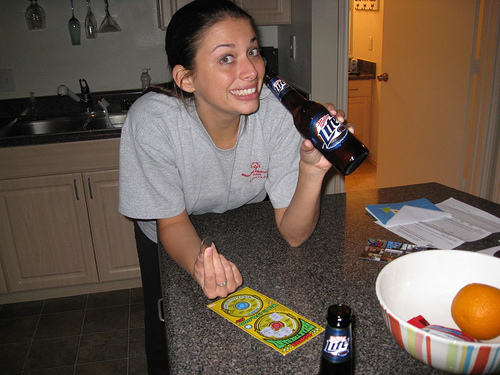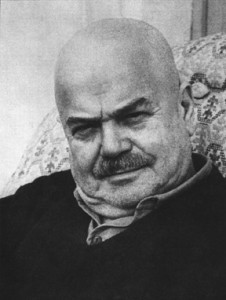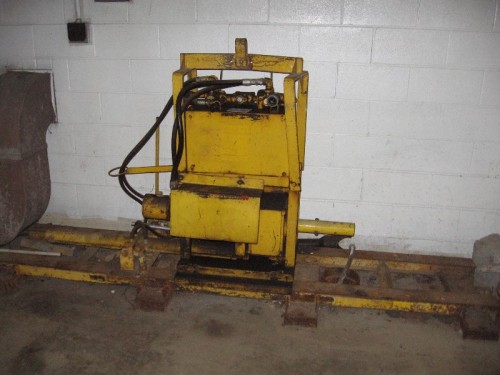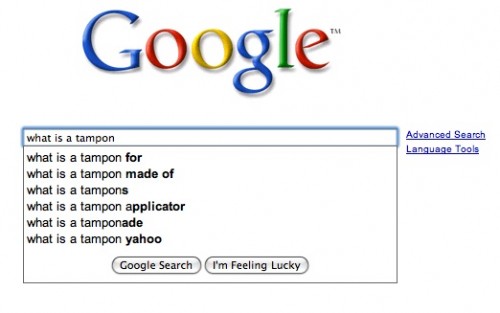n+1 remembers David Foster Wallace.
Nick Maniatis, master of The Howling Fantods, remembers David Foster Wallace at Infinite Summer.
Start Button

poor tessie
Is there a single story, or bit of writing, something you read, etc., that made you want to first begin writing? It doesn’t have to be a story; you could expand this – a piece of art, a bit music composition, whatever. Can you pinpoint, if possible, an object with which you interacted that made you want to create some real writing for the first time ever in your life and continue to do it until you die and rot?
I would rather focus on that initial first ever commitment to writing. We’ve talked a lot about ways we continue to inspire ourselves to create text (what music we listen to or what art we look at, for example), so this is more of an origins question: the origins of your first ever serious impulse to write. For that reason, it might be a little too hard to answer, but still fun to think about, maybe.
This question courtesy of David Erlewine, who emailed me this:
maybe you could do a post about the story that “got” people into writing. kinda cheesy maybe … and for some there may not be “one” story but i know for me reading shirley jackson’s the lottery absolutely made me want to write/read/etc. for good.
Reading Russia: Chapter 1 of Viktor Shklovsky’s Theory of Prose
And so, in order to return sensation to our limbs, in order to make us feel objects, to make a stone feel stony, man has been given the tool of art. The purpose of art, then, is to lead us to a knowledge of a thing through the organ of sight instead of recognition. By “enstranging” objects and complicated form, the device of art makes perception long and “laborious.” The perceptual process in art has a purpose all its own and ought to be extended to the fullest. Art is a means of experiencing the process of creativity. The artifact itself is quite unimportant.
 I’m slowly working my way through Viktor Shklovsky’s Theory of Prose (translated by Benjamin Sher and published by Dalkey Archive Press). I’ve read the introduction by Gerald Bruns, the translator’s preface, and the first chapter so far and have been pleased with the result. Especially fascinating to me is this idea of ostraniene (Sher admits to having translated this neologism by coining the word ‘enstrangement’) and how it works in art, or rather prose (fiction, for me). It seems to me that ostraniene is a foundational piece of Shklovsky’s theory; therefore, it’s worth devoting some time to here.
I’m slowly working my way through Viktor Shklovsky’s Theory of Prose (translated by Benjamin Sher and published by Dalkey Archive Press). I’ve read the introduction by Gerald Bruns, the translator’s preface, and the first chapter so far and have been pleased with the result. Especially fascinating to me is this idea of ostraniene (Sher admits to having translated this neologism by coining the word ‘enstrangement’) and how it works in art, or rather prose (fiction, for me). It seems to me that ostraniene is a foundational piece of Shklovsky’s theory; therefore, it’s worth devoting some time to here.
Chapter one, titled ‘Art as Device,’ begins with a discussion of art as an image-based sort of production.
September 11th, 2009 / 7:27 pm
I Went To Two Readings Last Week

worst reader ever
In the past few days, I went to two readings here in Houston: the Gulf Coast Reading Series (last Friday) and the NANO Reading Series (this past Tuesday). Both readings were fun. I had a fun time. So thanks to both groups of people who make these readings happen. After the jump, some notes about both series, the authors who read, and the bookstores, if you’re interested.
September 11th, 2009 / 12:37 pm
God, speaking of great criticism, the latest issue of The Quarterly Conversation devotes a good deal of its space (and an editorial response) to a JC Hallman essay on criticism. Enjoy.
Word Spaces (16): Nick Antosca
Hi everyone. Here’s Nick Antosca‘s apartment and a few paragraphs describing where he writes. He wrote Midnight Picnic in this apartment. Thank you, Nick Antosca, for taking the time to do this post.
I write in my bedroom. I have a large bedroom for New York, so I can fit a small couch in it. (My bedroom used to be half the living room, but we chopped it up when we moved in. Three people live in what was originally a one bedroom apartment.) My bed is in one corner and diagonally across from it is the black leather couch I sit on when I write (on my laptop). This is really not ergonomic, but when I used to write at a desk, with ergonomic pads in an ergonomic chair, my wrists and back hurt a lot. They don’t hurt now; I don’t know what that’s about, but that’s the way it is.
 The Rumpus now has a funny woman writer, Wendy Molyneux, who managed to write this humor column before reporting to her “regular day job knitting tampon cozies and being best friends with everybody.”
The Rumpus now has a funny woman writer, Wendy Molyneux, who managed to write this humor column before reporting to her “regular day job knitting tampon cozies and being best friends with everybody.”
Lots of recent activity at the Underground Library, mostly thanks to Dave Clapper and Ellentparker. Feel free to build from what they’ve done or add a new entry. Madore wants significantly to expand the database by the end of 2010.
Word Spaces (15): Stephen Elliott
 Stephen Elliott‘s post here makes me realize that I should reevaluate some of my assumptions about writers’ work spaces. Because I often write in one room at one desk at a certain time, it’s very easy for me to assume the same about others. This assumption is obviously flawed, but I cannot help myself. Having seen/read this bit about where Elliott gets his work done, I’m reminded that others’ habits can be quite different than mine.
Stephen Elliott‘s post here makes me realize that I should reevaluate some of my assumptions about writers’ work spaces. Because I often write in one room at one desk at a certain time, it’s very easy for me to assume the same about others. This assumption is obviously flawed, but I cannot help myself. Having seen/read this bit about where Elliott gets his work done, I’m reminded that others’ habits can be quite different than mine.
Here’s Stephen Elliott’s essay on his word space.
I don’t always have a “writing space.” I mean, I have an office in the Writers Grotto in San Francisco, that I share with Isaac Fitzgerald. A lot of times there’s empty offices so Isaac sits in Jason’s office, and a lot of times I’m not here, especially recently when I was working on a television show and when I’m traveling, which is more often than I really like.
Michael Kimball interviews Gary Lutz at The Faster Times (originally appeared in New York Tyrant).
